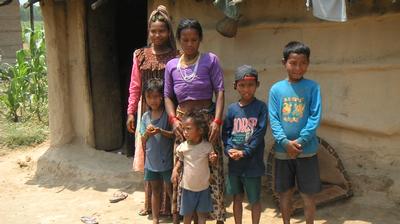Gender of children, education and occupational choice in Nepal
Magnus Hatlebakk
The project investigated any negative effects of having many children. The methodological challenge was causality. We know that poor people get more children, but does that imply that having many children makes them poor? We use the random event of having a first-born girl to establish an exogenous variation that may lead to more children in a country where people prefer sons.
In our first paper we find that women with a first-born girl get more children. In the second paper we show, however, that households compensate by taking in other people in the household if there are few own children, so that income per capita (and thus also poverty status) is not affected by the number of own children. In the third paper we focus on a particularly important income source in Nepal, remittances, and study to what extent family size affects number of migrants, and in turn total remittances received by the household. It appears that if there are many migrants they "free ride" and send less money back to the household.
In a fourth paper we find that the number of children does not affect the investment in each child's education. Here we do however find other evidence of son-preference. If the woman has a first-born girl, then the male siblings get a better education on average. The explanation may be that the girl takes care of household chores so that her brothers can focus on school. We followed up with a deeper analysis of son-preference and the role of female empowerment: In the final paper we investigated to what extent the economic resources of a woman's natal family affect her subjective say within her own family, and to what extent this in turn affects the education of her children. We find that both economic empowerment, as well as the subjective measure affect education.
The project was part of the ECONPOP research program. The Population Reference Bureau produced a Policy Brief based on the outputs from the full program:
Lee, Marlene and Pierce, Meredith (2017). ECONPOP: Results for Sustainable Development.
Some outputs from the CMI project (also see the publications links):
Manandhar, Jyoti. (2014). Natal Home Property, Female Empowerment and Fertility in Rural Nepal. New Era Study Report. Kathmandu, Nepal.
KC, Bal Kumar (2014). Communicating Population for Development Planning. Keynote adress at the First National Population Conference, Kathmandu, June 5-7, 2014.







